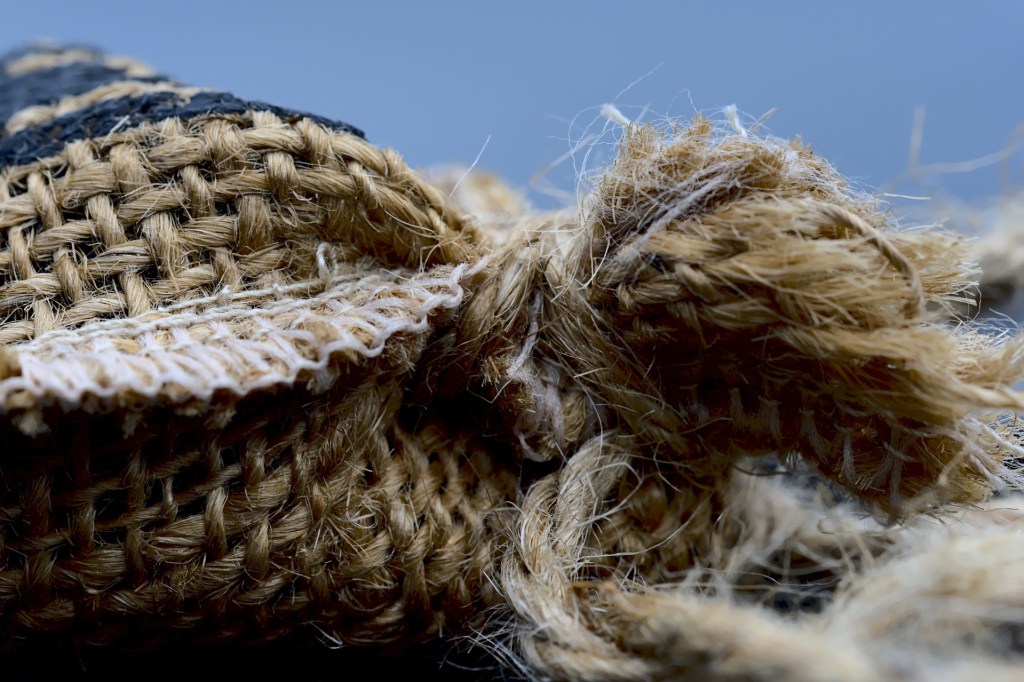Free to Mourn and Grieve: It’s Okay to Wear Your Sackcloth
Jesus gave us permission to mourn and grieve by demonstrating these rich and therapeutic emotions himself.

My kids were always creative with their wardrobes. I think it’s from our early homeschooling days with no dress codes. They could be Spider-Man or hang out in their pajamas all day.

After our oldest entered public school, I found him laying out a plaid button-up shirt, bow tie, and sports coat to wear the following day. “It’s style day tomorrow,” he told me enthusiastically. I imagined it was a school spirit dress-up day, but he clarified, “No, I’m just having my own style day!” Concerned he might be the target of less-than-flattering comments, I smiled with relief after finding out that his peers loved it.
I still tend to avoid giving fashion advice today, as my kids are all very unique stylistically, and what they wear tends to express who they are. And my husband? Well, the next twenty-seven years probably won’t fix what’s been broken for the past twenty-seven.
I think our lives would be a little easier if our clothing expressed our inner selves. What we’re feeling on the inside.
In many of the stories detailed in Scripture, this is often done by wearing sackcloth, a practice that gives the participant permission to mourn and grieve.
Mourners wear rough cloth woven from goat or camel hair. It’s a thick, coarse fabric that’s both uncomfortable and noticeable, and typically used for storing things, hence the name sackcloth. It was also a sign of submission or self-humiliation. In Biblical times, God’s people wore it as an outward expression of their hearts’ posture during times of repentance and seeking God’s favor or provision.
In the social media world of unrealistic portrayals of life, I find it refreshing when someone is willing to openly mourn and grieve. There are many benefits of being open (in an appropriate, intentional way) about our pain. To let others know when we’re in a season where we need to mourn and grieve. Heather Riggelman beautifully said, “Maybe if we still wore sackcloth and ashes, people would understand the grief we are still experiencing.” It can help others in similar situations identify with us and help bear our burdens. In this way, it humanizes us.

There is great power in telling our story, and many times it initiates our healing process when we are hurting. Brene Brown says, “If we can share our story with someone who responds with empathy and understanding, shame can’t survive.” K. J. Ramsey agrees, “You were never meant to crawl your way out of the pit of stress and shame alone. We were created to walk the path of regulation together to guide our bodies back home from stress and shutdown to feeling safe and social again.”
The Problem With Hiding
There is also much danger in hiding our story, which keeps us chained to the hurt and shame we experience. Some have described hiding our emotions and experiences as filling an imaginary black bag with items that weigh us down. Each of us is born with a small, empty black bag, and when we experience hurt or pain, we usually stuff it in the black bag. Hurts, shame, feelings of inadequacy, helplessness, pain, fear, anxiety – we keep stuffing them in the bag.
Eventually, we grow the bag large and heavy, but it’s attached to us, so we continue to lug it around. And every once in a while, we explode – and all those items we’ve stuffed in our bag come tumbling out.

The Freedom of Visibility
The solution to unloading our black bag is to name the things inside and uncover what we’ve hidden away. Not by sharing every detail on social media, but by talking with an empathic listener we trust. It doesn’t have to be a therapist, although I have benefited from processing things with mine. It’s much healthier to deal with our grief and pain by speaking them rather than stuffing them.
Our audience can be a trusted friend, a small group of people that we do life with, or a support group. People with whom we can wear our sackcloth until our heart heals. People who will walk with us from our shame to shalom in Christ. People who will gently help bear our burdens. And who knows? God might use our openness to help unload someone else’s black bag – and remind us that one of the beautiful aspects of following Jesus is that we do not follow him alone.





